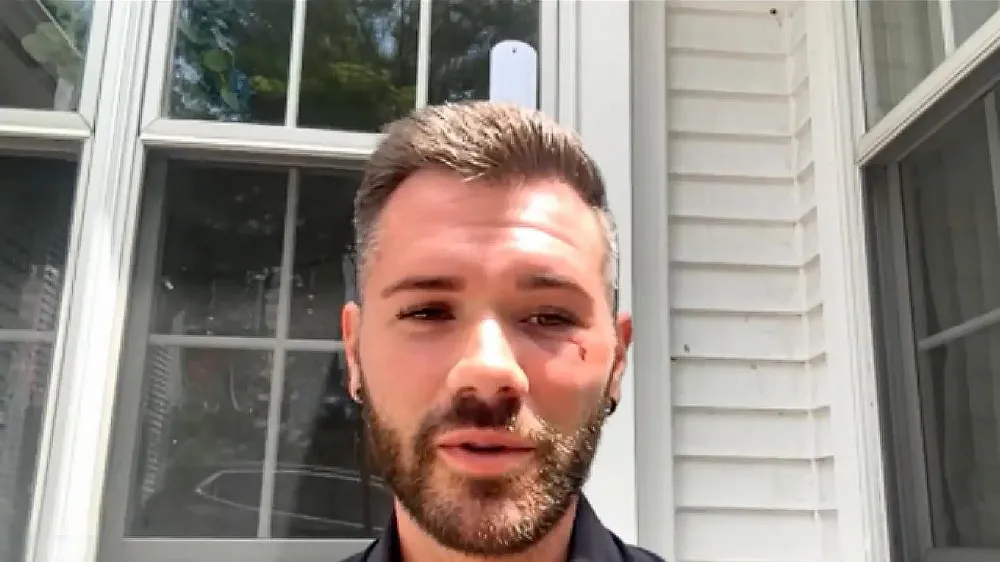March 29, 2020
Virus Coordinator Birx is Trump's Data-whisperer
Ricardo Alonso-Zaldivar and Aamer Madhani READ TIME: 5 MIN.
For many in the public health and political worlds, Dr. Deborah Birx is the sober scientist advising an unpredictable president. She's the data whisperer who will help steer President Donald Trump as he ponders how quickly to restart an economy that's ground to a halt in the coronavirus pandemic.
Others worry that Birx, who stepped away from her job as the U.S. global AIDS coordinator to help lead the White House coronavirus response, may be offering Trump cover to follow some of his worst instincts as he considers whether to have people packing the pews by Easter Sunday.
In coming days, immunologist Birx will be front and center in that debate along with the U.S. government's foremost infection disease expert, Dr. Anthony Fauci, as well as Vice President Mike Pence. Birx will bring to the discussion what she fondly refers to as her sheet music – data on testing, mortality, demographics and much more.
"What the president has asked us to do is to assemble all the data and give him our best medical recommendation based on all the data," Birx told reporters. "This is consistent with our mandate to really use every piece of information that we can in order to give the president our opinion that's backed up by data."
But will Trump listen?
The president has sent mixed messages on that. He plans to meet with the two doctors and Pence on Monday to review the latest data on the spread of the disease. His administration's original 15-day guidelines promoting social distancing expire Tuesday.
Over a matter of weeks, Trump has veered from playing down the virus threat to warning Americans it could be summer before the pandemic is under control. And in more recent days, he's talked eagerly about having parts of the country raring back by Easter in two weeks.
As the president's message has vacillated, Birx has emerged as one of the most important voices laying out the administration's pandemic response. She has a way of spelling out the implications of the virus to Americans in personal terms while offering reassurances that the administration is approaching the pandemic with a data-driven mindset.
For most people, the new coronavirus causes mild or moderate symptoms, such as fever and cough that clear up in two to three weeks. For some, especially older adults and people with existing health problems, it can cause more severe illness, including pneumonia, and death.
Former Health and Human Services Secretary Kathleen Sebelius, who helped shepherd Birx's ambassadorial nomination through the Senate in the Obama administration, said it's like Birx and Fauci have become a tag team for science in the midst of calamity.
"I can't imagine how complicated it is to have a boss –- if you will – who insists on saying things on a regular basis that are just not true and aren't based on any science," Sebelius said.
In her public comments, Birx has taken pains to avoid publicly contradicting Trump when he's offered some decidedly unscientific riffs, unlike Fauci, a professional mentor, who has been known to push back pointedly.
Instead, her messaging has toggled between providing digestible interpretations of what the data is saying about the spread of the virus and offering relatable pleas to the American public to practice social distancing to help stem the disease.
In recent days, Birx has received praise from Trump backers and pushback from some fellow scientists after she minimized what she called "very scary" statistical modeling by some infectious disease experts.
One study, published this month by Harvard University epidemiologists, found that the need to maintain social distancing remains crucial in the weeks ahead to prevent the American healthcare system from becoming overwhelmed by new cases.
"The scenario Dr. Birx is 'assuring' us about is one in which we somehow escape Italy's problem of overloaded healthcare system despite the fact that social distancing is not really happening in large parts of the US," Marc Lipsitch, a co-author of the study, wrote on Twitter.
Birx also has drawn criticism for asserting that there are still beds in intensive care units and a "significant" number of ventilators available in hospitals around New York City -- the area hardest hit by virus. That message doesn't jibe with the dire warnings of city hospital workers, who in recent days have said they're ill-equipped and in danger of being overwhelmed by patients stricken with the virus.
Birx's friends and colleagues say she is one of the adults in the room who is providing the president with clear-headed advice and giving Americans the information they need to stay safe.
"She's a tough cookie," said Michael Weinstein, who heads the AIDS Healthcare Foundation and got to know Birx professionally after she was named the global AIDS coordinator in 2014. "She's 100% about the data."
In the sea of men in dark suits who have been appearing with Trump for daily briefings, the 63-year-old mother of two with a fondness for colorful scarves stands out. Her seemingly endless scarf collection was even fodder for comedian Paula Poundstone recently on the NPR quiz show "Wait Wait...Don't tell me!"
Birx's resume is impressive: She is a U.S. Army physician and recognized AIDS researcher who rose to the rank of colonel, head of the global AIDS program at the Centers for Disease Control and Prevention, and a rare Obama administration holdover as the State Department's ambassador-at-large leading a U.S. taxpayer-funded worldwide campaign to stop the spread of HIV/AIDS.
Birx has also developed a reputation as a tough boss. Some who fall under her watch at the global effort known as PEPFAR have complained that the leadership of her office has been"dictatorial" and "autocratic," according to a State Department Office of Inspector General audit released earlier this year.
"She has somewhat of a reputation of being a hard task-master," said John Auerbach, head of the nonprofit Trust for America's Health.. "She is incredibly hard-working, someone who was driven and would drive other people to work really hard and to do their best work."
Birx has also been perhaps the most outspoken in calling for Americans to be mindful in how they are interacting with others. And she's made the case in personal terms.
The doctor says she's avoided visiting with her young grandchildren as she practices social distancing, and she's spoken in admiring tones of her two millennial daughters when making the case that younger Americans' actions will play a key role in determining how quickly the country can contain the virus.
She also has spoken of her grandmother living with a lifetime of guilt, because she caught the flu at school as a girl and, in turn, infected her mother – one of an estimated 50 million people worldwide who died in the 1918 influenza epidemic.
"She never forgot that she was the child that was in school that innocently bought that flu home," Birx said of her grandmother.
Birx, who declined to be interviewed for this article, told a Christian TV network popular with Trump's evangelical base that she's confident that the president is, like her, a student of data.
"He's been so attentive to the scientific literature and the details and the data," Birx told CBN. "I think his ability to analyze and integrate data that comes out of his long history in business has really been a real benefit during these discussions about medical issues because in the end, data is data."







